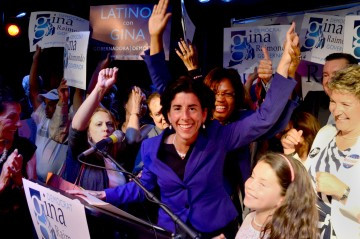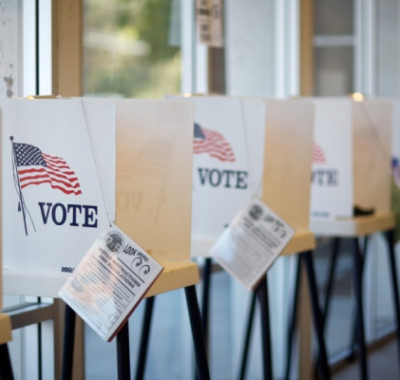Moore: Brookings Recommendations Would Be Costly
Monday, January 25, 2016
After spending hours perusing it, I'll say this about the Brookings Institution Study of the Rhode Island economy: the report does contain a good faith analysis of the state's economy.
Last August, I reported on the fact that the study was being funded, in part, by finance titan Mark Gallogly, whose companies have received millions in RI pension fund money. The report, however, reads like a rational analysis of how to improve the state's economy--not something that would benefit his, or anyone else’s particular business interests.
The problem, however, is the report’s recommendations will require tens of millions of dollars every year and the collective will of all Rhode Island stakeholders to work together to bring it to fruition.
GET THE LATEST BREAKING NEWS HERE -- SIGN UP FOR GOLOCAL FREE DAILY EBLASTA Good Faith Plan
There aren't really hard and firm dollar amounts with respect to what the report's recommendations will actually cost taxpayers since so many of the ideas are obviously in the conceptual stage, but the report itself pegs many of the program's costs in ranges of less than $1 million per year, to $1-5 million per year, to more than $10 million per year. Considering those guidelines, the recommendations would easily exceed $50 million.
Given the fact that Rhode Islanders are already hesitant to make investment on vague concepts that may, or may not, pay off in the long run (thanks to our collective, ongoing $38 studios hangover), enacting the report isn't going to be an easy sell for Governor Gina Raimondo.
The other problem with this report, just like the reports that preceded it, is the fact that the solutions to Rhode Island's problems are easy to identify, but very hard to execute. The best way to think of it is to compare it to losing weight. Losing weight is easy to explain to somebody--eat less and exercise more. The problem, however, is that actually doing those two things, for someone who isn't accustomed to healthy habits, requires unbelievable discipline.
Let's face it: Rhode Island is a state that taxes, regulates, and panders to special interest groups far too much for its own good.
Bitter Medicine
It's not easy to reduce the tax burden on the state's businesses and residents, when politicians are dependent on that money to pander to special interest groups that buttress their political campaigns.
And it will be difficult to bring together leaders from all major sectors of the Rhode Island economy when for far too long, business leaders have been conditioned to stay as far away from the Rhode Island government as possible. Also, the study recommends creating "innovation districts" throughout the state, but Boston already has its own. Isn't the point of "innovation" to be the first one doing it?
The study's executive summary asks a vital question for Rhode Island's future: "Are the state's business, civic, university, and government leaders prepared to think deeply and act decisively as their predecessors did in order to meet profound uncertainty with innovation and ingenuity? Or will they merely make the best of slow decline?" The question refers to the state's transition from a farming economy to an industrial economy in the 19th century.
It calls for collaboration between the state's private sector businesses, non-profit organizations, colleges and universities, and the state government to jump start the economy in several key areas: the most interesting of which being in the technology sector with a focus on computer robust, statewide computer coding program. That sounds good, at first blush. But what if Rhode Island trained all these people and gave them coding skills only to have them go obtain jobs in Boston's already established innovation district?
Computer Coding
The report details nicely what has hindered the Rhode Island economy as well. Namely, it's the fact that the erosion of the state's manufacturing economy was replaced largely by jobs in the service sector. That's not good, because service wages are significantly lower than those of manufacturing jobs.
The report states the obvious with respect to the state's regulatory environment, "a heavy overhang of burdensome provisions continues to earn the state negative ratings on national assessments." For far too long, the state and local governments in Rhode Island have been viewed, and more to the point, viewed themselves as adversaries to businesses. Only when those running state and local governments begin to view the business as their customers, instead of their subordinates, will Rhode Island's economic climate improve.
Rhode Island has extremely high and burdensome local property taxes on businesses and homeowners alike. But they hurt the little guy much more than the big corporations. For instance, when a major company, like Hasbro or Blue Cross, seeks to relocate, they're able to leverage special tax deals from a city like Providence. So the system isn't bad for big employers with political pull, but it's awful for smaller companies.
The Recommendations Could Help
The Brookings Institution's recommendations may well be a boon to Rhode Island if enacted. But I cannot help thinking that instead of having the government push the private sector into certain industries or economies, Rhode Island would be much better off creating a business and regulatory climate that works for everyone, and then letting the industries and businesses that are good fits here arise organically.
Now there's something that sounds infinitely easier than it really is. But like most difficult things, it would be worth it.
Russell J. Moore has worked on both sides of the desk in Rhode Island government, both for newspapers and on political campaigns. Send him email at [email protected]. Follow him on twitter @russmoore713.
Related Slideshow: Leaders on Fixing RI’s Economy
Recent rankings put Rhode Island #37 for business climate. And while that takes the state out of its most bottom-dwelling days, leaders across RI have weighed in as to what could futher the state moving forward.
Related Articles
- Moore: Speaker Mattiello Should Resign Over 38 Studios
- Moore: RI’s 38 Studios Economy Breeds Unfairness
- Moore: Projo Kept Public In the Dark on 38 Studios
- Moore: Sounding the Alarm on Pension Fund Returns
- Moore: RI is Too Poor To Bid For Pawsox
- Moore: RI Has Bigger Ethics Issues Than Lally’s Job
- Moore: Let Procaccianti Build a Hotel on Fountain Street
- Moore: Fung’s Fiasco Shows Us To Distrust Party Affiliation
- Moore: Will Brookings Study Remember RI’s Forgotten People?
- Moore: Elorza’s Misguided Guatemalan Tour
- Moore: Senator Sheehan’s First Southwest Awakening
- Moore: Was Chafee’s Presidential Bid Successful?
- Moore: Toll Plan Will Radically Restructure RI Borrowing
- Moore: Rhode Island Needs a Holiday!
- Moore: Relocation Expert Says RI Can Lure GE
- Moore: End Providence Pension Spiking
- Moore: Unlike RI, Puerto Rico Takes on Ratings Agencies
- Moore: GE Decision Shows RI Must Be Business Friendly
- Moore: My RI Christmas Wish List
- Moore: Fix the 6-10 Connector For Freedom’s Sake
- Moore: Elorza, Firefighters Must Reach Settlement on Platoon Shift
- Moore: Statewide Teacher Contract Will Benefit RI
- Moore: Elorza’s Demotion of Fire Chief is a Head-Scratcher
- Moore: Bring Back The Dancing Cop


















